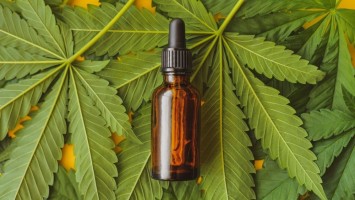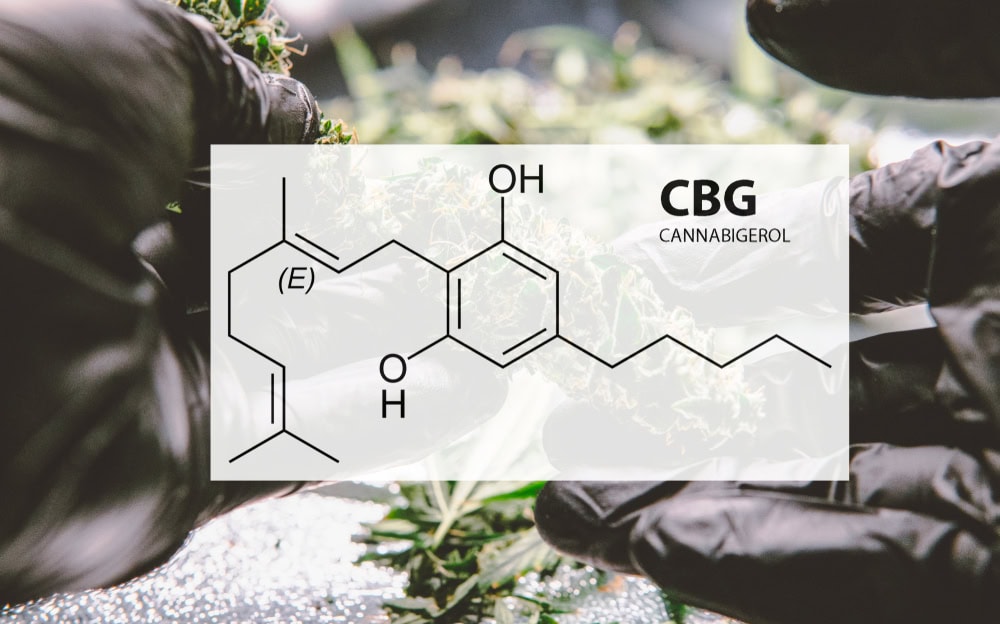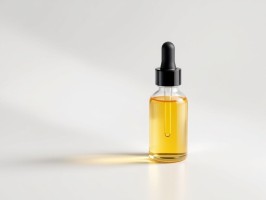Cannabidiol Oil for Stress: Effective CBD Effects and Solutions for Stress Relief

Photo source: Shutterstock.com
The proliferation of cannabidiol (CBD)-infused products on the market in recent years has been remarkable, with global surveys indicating that approximately 10% to 15% of adults worldwide have used CBD at some point. Individuals turn to CBD for various health concerns, including pain management and sleep disorders, despite a lack of comprehensive scientific evidence supporting its effectiveness.
Current research is exploring CBD’s potential therapeutic applications in a range of conditions, including neurodegenerative diseases such as Parkinson’s and multiple sclerosis, as well as mental health disorders, including schizophrenia, post-traumatic stress disorder (PTSD), anxiety, and depression. Preliminary findings suggest that CBD may offer relief for individuals suffering from anxiety or depression. However, given the limited scope of existing studies, caution is warranted, and further rigorous investigation is needed to fully understand its therapeutic potential and establish definitive clinical guidelines.
What is cannabidiol oil and how does it affect the body?

Photo source: Shutterstock.com
Cannabidiol oil, commonly referred to as CBD oil, is a natural phytochemical extract derived from the hemp plant (Cannabis sativa), which belongs to a class of compounds known as cannabinoids. Unlike tetrahydrocannabinol (THC), the primary psychoactive compound in cannabis, CBD does not induce any euphoric or hallucinatory effects. This characteristic makes CBD particularly attractive for therapeutic applications, as it can exert its benefits without the psychoactive consequences typically associated with cannabis use.
CBD’s therapeutic potential is largely mediated through its interaction with the body’s endocannabinoid system (ECS), a complex and crucial network of receptors and neurotransmitters that regulate a wide array of physiological processes, including mood, immune function, pain perception, and overall homeostasis. Specifically, CBD engages with CB1 and CB2 cannabinoid receptors, which are distributed throughout various tissues, including the central nervous system, peripheral organs, and immune cells. This interaction has profound implications for maintaining balance within the body.
The primary pharmacological effects of CBD include anxiolytic (anxiety-reducing) activity, analgesic (pain-relieving) properties, sleep modulation, neuroprotection, and immune system regulation. Research suggests that CBD’s ability to mitigate symptoms of anxiety and stress may be attributed to its action on serotonin receptors in the brain, which are integral to mood regulation. Furthermore, preliminary studies indicate that CBD’s potential to modulate the ECS could offer neuroprotective benefits, especially in neurodegenerative conditions. By balancing the ECS, CBD may play a pivotal role in stabilizing both psychological and physiological responses to stress, enhancing overall well-being. However, as research into CBD’s full range of effects is still evolving, clinical applications should proceed with careful consideration of individual variability and the current scientific evidence.
The impact of cannabidiol oil on stress reduction

Photo source: Shutterstock.com
If you are experiencing stress, CBD oil may offer a viable therapeutic option. Emerging scientific studies have demonstrated that CBD can influence cortisol levels, which is commonly referred to as the "stress hormone." By interacting with serotonin receptors in the brain, CBD may assist in regulating mood, thereby alleviating feelings of anxiety and promoting emotional stability.
A study published in the Journal of Clinical Medicine has provided compelling evidence that CBD can substantially reduce anxiety levels in individuals diagnosed with anxiety disorders. In addition, research involving animal models has suggested that CBD might exhibit antidepressant-like effects by modulating neuroplasticity in brain regions associated with mood regulation and depression.
Despite these promising findings, it is crucial to approach CBD as a therapeutic option with caution. Although preliminary data indicates its potential benefits in stress reduction, further clinical studies are required to comprehensively elucidate the mechanisms underlying CBD's action and to establish definitive guidelines for its use in stress management. The evolving nature of this research necessitates continued investigation to fully grasp the extent of CBD's therapeutic capabilities.
How to use cannabidiol oil for stress - dosage and application methods
When incorporating CBD oil into a regimen for stress reduction, it is essential to begin with low doses to assess individual tolerance and gradually titrate to achieve the desired therapeutic effect. A standard starting dose ranges from 20 to 40 mg of CBD per day, typically divided into two to three doses. It is advisable to increase the dosage incrementally by 5 mg per week. This gradual approach allows for the optimal adjustment of CBD intake, enabling you to monitor its efficacy and minimize potential adverse effects.
There are various administration methods available, each with distinct absorption profiles and onset times:
-
Sublingual Application: This method involves placing a few drops of CBD oil under the tongue and holding them for 60 to 90 seconds before swallowing. The sublingual route ensures rapid absorption through the mucous membranes, allowing CBD to enter the bloodstream directly and produce faster onset of effects. This method is highly efficient and is often preferred for quick relief from acute symptoms of stress.
-
Oral Ingestion: CBD oil can be ingested orally by mixing it into meals or beverages. However, it is important to note that when CBD is consumed this way, it must first pass through the digestive system and liver before entering the bloodstream, a process known as first-pass metabolism. This can delay the onset of effects compared to sublingual administration. Although the effects may be slower to manifest, the benefits can last longer, making this a suitable option for sustained stress management.
-
Topical Application: Topical CBD products, such as creams, balms, and lotions, can be directly applied to the skin, particularly in areas experiencing muscle tension or discomfort. These products provide localized relief, helping to alleviate the physical symptoms of stress, such as tight muscles or soreness, without the CBD entering the bloodstream. This method is ideal for individuals seeking targeted relief for stress-induced physical tension.
-
Inhalation: Vaporizing CBD oil provides rapid onset of effects, as the CBD is absorbed directly into the bloodstream via the lungs. This method is particularly effective for individuals who need immediate relief from acute anxiety or stress. However, it requires the use of specialized equipment such as a vaporizer, and care should be taken to ensure the device is used properly to avoid inhaling harmful substances.
Each method of administration has its benefits and may be suited to different therapeutic needs, depending on the individual’s preferences and the desired speed of relief. It is important to consider factors such as convenience, onset time, and desired duration of effects when selecting the most appropriate method for stress reduction. As with any medical supplement, it is advisable to consult a healthcare professional before starting a CBD regimen, particularly if you have underlying health conditions or are taking other medications.
Comparing cannabidiol oil with traditional stress-relief methods
When compared to traditional anti-anxiety medications, CBD presents a number of potential advantages. Notably, it is non-addictive and generally associated with fewer adverse effects. In contrast to benzodiazepines, which are commonly prescribed for anxiety and are known to induce sedation, cognitive impairment, and dependency, CBD typically does not interfere with normal daily functioning. This makes it an attractive alternative for individuals seeking to manage anxiety without the risk of dependence or significant cognitive disruption.
Moreover, CBD’s therapeutic profile is less likely to lead to the tolerance or withdrawal symptoms often seen with conventional anxiolytics. Studies suggest that CBD can alleviate anxiety without causing the sedative effects that commonly accompany benzodiazepines, allowing individuals to maintain a clearer mental state throughout the day.
However, it is important to approach CBD with a realistic perspective. While promising, CBD is not a universal cure for anxiety, and it should not be seen as a substitute for professional medical treatment in the case of severe or chronic anxiety disorders. CBD may serve as a beneficial adjunct to existing therapeutic strategies, particularly in individuals seeking natural or supplementary methods of stress management. It is critical to consult with a healthcare provider before introducing CBD into your regimen, especially if you are currently using other medications, to ensure compatibility and avoid potential interactions. Additionally, the varying response to CBD underscores the importance of personalized care in addressing anxiety and mental health concerns.
CBD effects - Potential side effects and interactions of cannabidiol oil
While CBD is generally regarded as safe for most individuals, it is not without its potential side effects. The most commonly reported adverse effects include fatigue, changes in appetite, and gastrointestinal disturbances such as diarrhea. In rarer instances, individuals may experience vertigo or nausea. These side effects are typically mild and tend to resolve with continued use or by adjusting the dosage.
One critical consideration when using CBD is its potential for interactions with other medications, particularly those metabolized by the cytochrome P450 (CYP450) enzyme system in the liver. This includes a range of medications, such as antiepileptics, anticoagulants, and immunosuppressants. As CBD can alter the metabolism of these drugs, it may either increase or decrease their effectiveness, leading to unintended therapeutic effects or complications. Therefore, it is essential to inform your healthcare provider about any CBD use to ensure that they can monitor for potential drug interactions and adjust treatment plans accordingly.
Given these considerations, it is highly recommended that you consult with your doctor prior to initiating CBD, especially if you are on medication that is processed through the CYP450 enzyme system. This precaution ensures that the use of CBD is both safe and effective in the context of your broader healthcare needs.
Choosing the right cannabidiol oil product for stress management

Photo source: Shutterstock.com
When selecting CBD oil for stress management, it is crucial to consider several key factors to ensure both efficacy and safety:
-
Source: Opt for products derived from organically grown hemp. This ensures that the plant is free from pesticides, herbicides, and other harmful chemicals, which could compromise the quality and purity of the oil.
-
Extraction Method: The CO2 extraction method is preferred, as it guarantees a clean, solvent-free product. This technique extracts CBD efficiently while preserving the beneficial compounds of the hemp plant, ensuring a high-quality oil without residual chemicals.
-
Full Spectrum vs Isolate: Full-spectrum CBD oils contain a broader range of cannabinoids, terpenes, and flavonoids found in hemp, all of which may work synergistically to enhance the therapeutic effects of the oil. This entourage effect could improve its efficacy in managing stress. In contrast, CBD isolate contains pure CBD, which might not offer the same comprehensive benefits.
-
Certificates: Always look for products that come with third-party laboratory certificates of analysis. These certificates confirm the CBD content and verify that the product is free from contaminants such as heavy metals, pesticides, and solvents.
-
Manufacturer Reputation: Choose products from reputable manufacturers with transparent production practices. Brands that offer clear information about sourcing, extraction methods, and quality control are generally more reliable. Additionally, check for customer reviews and ratings to gauge the experiences of other users.
Remember that the proper selection and use of CBD oil can play a significant role in stress reduction and overall well-being. However, it is essential to consult with a healthcare professional before beginning any supplementation, especially if you have pre-existing conditions or are on prescription medications.
CBD can be a beneficial adjunct in managing stress, particularly when integrated into a comprehensive treatment plan. However, it should not be relied upon as a sole intervention. Its effectiveness is maximized when combined with lifestyle modifications and, where appropriate, pharmacological or psychotherapeutic treatments. While preliminary evidence supports its anxiolytic potential, further research is necessary to fully understand its long-term effects and optimal application. As with any therapeutic approach, individual response may vary, and careful monitoring is advised to ensure its safe and effective use in the context of stress management.
References:
-
Blessing, E. M., Steenkamp, M. M., Manzanares, J., & Marmar, C. R. (2015). Cannabidiol as a Potential Treatment for Anxiety Disorders. Neurotherapeutics, 12(4), 825-836.
-
Crippa, J. A., Derenusson, G. N., Ferrari, T. B., Wichert-Ana, L., Duran, F. L., Martin-Santos, R., ... & Hallak, J. E. (2011). Neural basis of anxiolytic effects of cannabidiol (CBD) in generalized social anxiety disorder: a preliminary report. Journal of Psychopharmacology, 25(1), 121-130.
-
Zuardi, A. W., Rodrigues, N. P., Silva, A. L., Bernardo, S. A., Hallak, J. E. C., Guimarães, F. S., & Crippa, J. A. S. (2017). Inverted U-Shaped Dose-Response Curve of the Anxiolytic Effect of Cannabidiol during Public Speaking in Real Life. Frontiers in Pharmacology, 8, 259.
-
Iffland, K., & Grotenhermen, F. (2017). An Update on Safety and Side Effects of Cannabidiol: A Review of Clinical Data and Relevant Animal Studies. Cannabis and Cannabinoid Research, 2(1), 139-154.
-
Millar, S. A., Stone, N. L., Yates, A. S., & O'Sullivan, S. E. (2018). A Systematic Review on the Pharmacokinetics of Cannabidiol in Humans. Frontiers in Pharmacology, 9, 1365.



